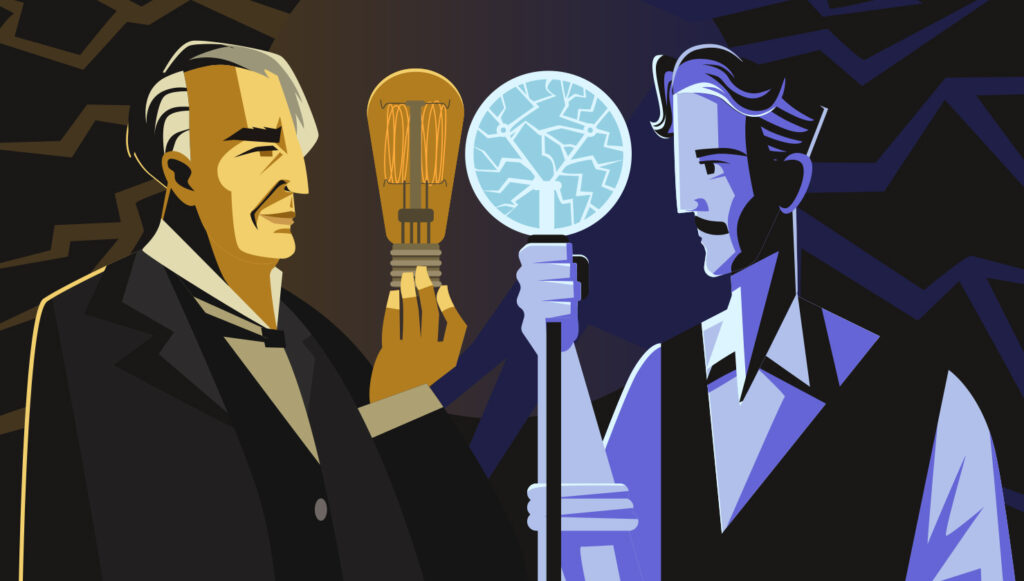
What would you say is the most important invention in human history? It’s not an easy question to answer. We had so many groundbreaking innovations throughout the ages that completely changed how we perceive our world. How much do you know about the most famous inventions in history? Test your knowledge with our quiz!
Many people say the wheel is the most important invention. One thing is for sure – it altered early human history in a significant way. Around 3500 B.C., the Mesopotamians invented the wheel. However, at the time wheels weren’t even intended for travel – they served as a potter’s wheel. It took several hundred years for someone to figure out how to use them for chariots.
Have you ever wondered what people did before inventing nails? They built wooden structures by attaching each piece to another one by one through exhausting geometrical work. Egyptians used nails since around 3400 B.C., and they were fully developed in ancient Rome.
The compass has helped humans to explore and navigate around the world. Early compasses were most likely invented by the Chinese, around 200 B.C. Before this invention, navigational systems relied primarily on astronomical signs. It was the compass that guided humans into the age of discovery.
Optical lenses were first developed by ancient Egyptians and Mesopotamians. Nowadays, they are used in various tools from glasses to microscopes and telescopes. As early as the 13th century, optical lenses became an aid to the weak-sighted. Magnifying lenses expanded our knowledge of various fields of study like biology, astronomy, archeology, chemistry, and physics.
Paper is yet another invention of the Chinese, dating back to 100 B.C. Since that time, people all around the world have been using paper to keep historical records and pass down precious knowledge to the next generations.
Before the appearance of paper currency, people used the trading system. Money took various forms throughout history including precious metals, coins, foods, vegetables, livestock, and anything else useful as tradable bartering assets.
The first to use paper money was China in the 9th century, with Europe following suit in the 1600s.
Gunpowder was invented around the same time paper money started doing rounds. It became a crucial factor in military and warfare, and consequently changed the course of many a war to come.
The invention of the printing press allowed for the mass production of books, pamphlets, and newspapers. In 1439, the German Johannes Gutenberg came up with a way to transfer ink from the movable type to paper in a mechanized way. Previously, books were mostly handwritten (often by monks), so this revolutionized the spread of knowledge and religion. By 1600, the Gutenberg presses printed more than 200 million books.
It’s hard to imagine our lives without electricity. Brilliant minds throughout the ages contributed to this fantastic invention, with Benjamin Franklin generally credited for furthering our understanding of electricity. It’s worth mentioning that Thales of Miletus was the first to research the phenomenon. The invention of the light bulb is attributed to Thomas Edison in 1879. Though a separate invention, it is unquestionably a significant advancement in the ability to harness electricity.
In 1781, James Watt patented a steam engine capable of continuous rotary motion. The steam engine played a significant role in the advancement of manufacturing, agriculture, and transportation throughout the 1800s. Others continued to improve on James Watt’s steam engine design over time. The steam turbine, which uses various heat sources to power the majority of the electricity in the United States, was the most recent major evolution of it.
Did you know that steel isn’t a naturally occurring metal? Steel is an alloy composed primarily of iron and a trace of carbon. Metals such as iron and bronze were used 4,000 years ago, but steel became prominent in human civilization during the Industrial Revolution. The “Bessemer Process,” a technique used to create steel by using molten pig iron, was used to mass-produce steel in the 1850s. Steel has since been used to build everything from bridges and houses to engines and skyscrapers.
Although Joseph Lister and Louis Pasteur were the first to declare war on bacteria, it was Alexander Fleming who propelled the medical world forward in the same battle with his accidental discovery of the bacteria-inhibiting mold we now call penicillin in 1928. Penicillin proved to be a significant advance in the world of antibiotics and was widely used throughout the twentieth century.
Cars completely changed the way we travel, as well as how we design our cities. They also brought the concept of an assembly line into the mainstream consciousness. In their modern form, cars showed up in the late 19th century. A lot of people had their hand in that invention, with special praise to Karl Benz for creating what’s considered the first practical motorcar in 1885.
Inventions shaped the world to be how it is today. How much do you know about these groundbreaking innovations? Don’t wait up and get down to the questions now!
How many questions are in this quiz?
20 questions
How many points can you score?
1 for each correct answer, so 20 all together
